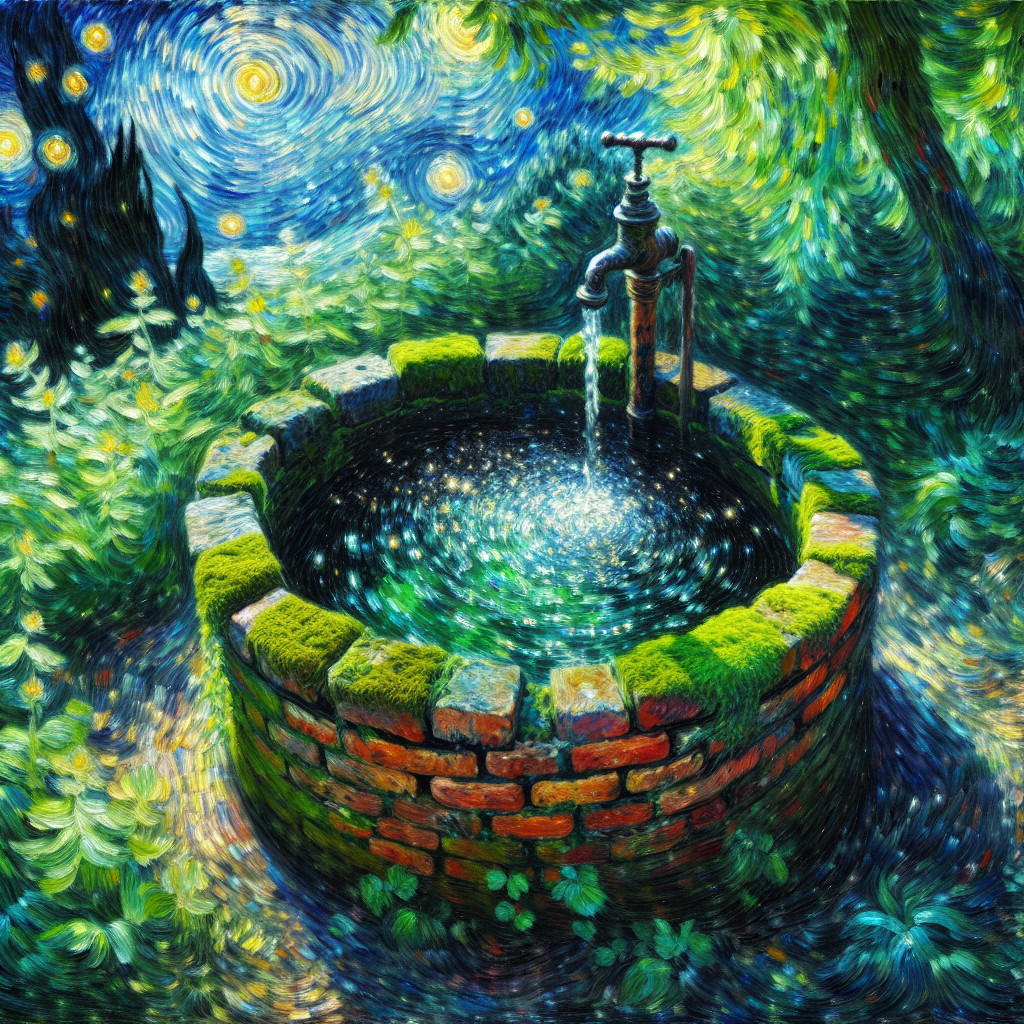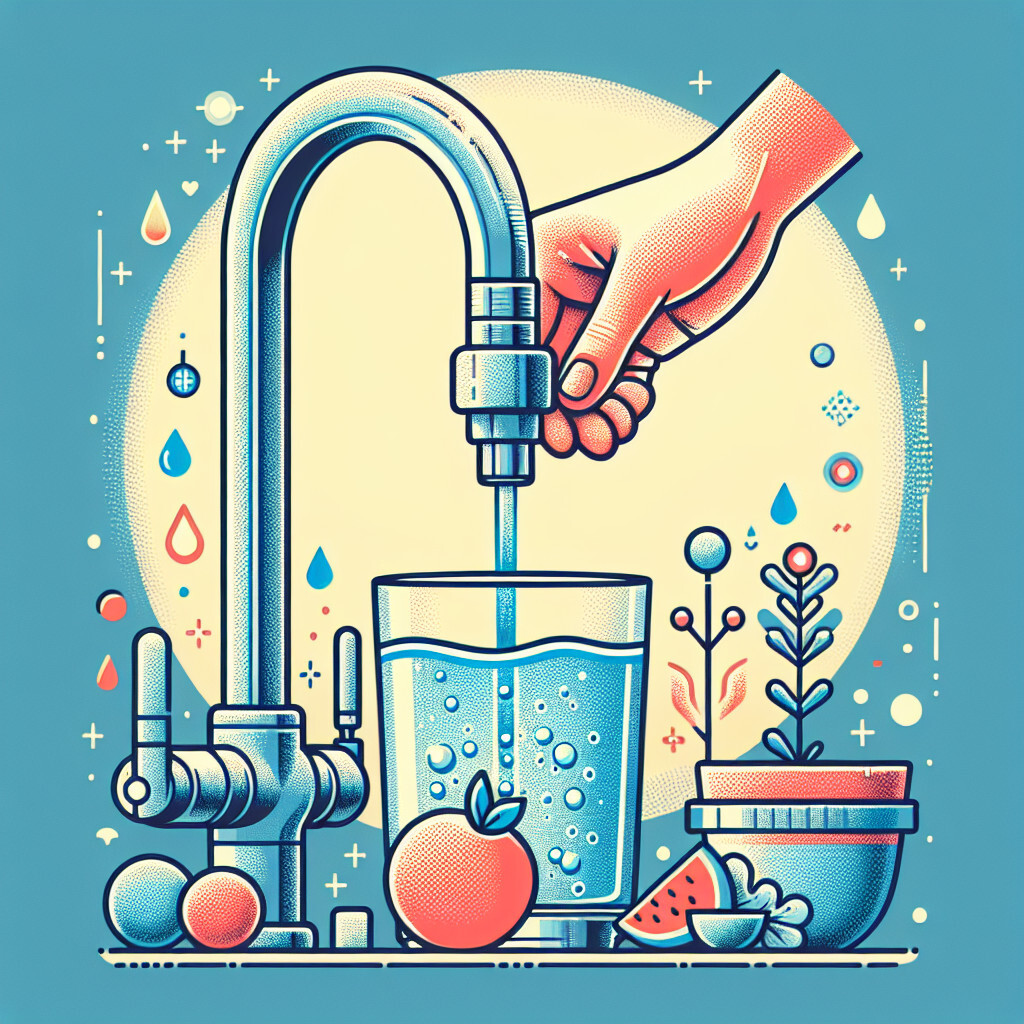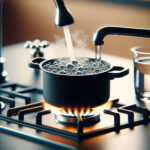-
Table of Contents
“Unleash the Power of Probiotics with Tap Water for Water Kefir!”
Introduction

Tap water is a common ingredient used in the preparation of water kefir, a fermented beverage teeming with beneficial bacteria. The quality and characteristics of tap water can significantly influence the fermentation process and the overall health of the kefir grains. Factors such as chlorine content, pH level, and mineral composition of the tap water can affect the growth and vitality of the kefir culture. Therefore, understanding the properties of your tap water is crucial when making water kefir at home.
Understanding the Impact of Tap Water on Water Kefir Production
Water kefir, a probiotic-rich beverage, has gained popularity in recent years due to its numerous health benefits. The process of making water kefir involves fermenting sugar water with water kefir grains, which are a symbiotic culture of bacteria and yeasts. However, the quality of water used in this process can significantly impact the final product. This article aims to shed light on the impact of tap water on water kefir production.
Tap water is a readily available resource in most households, making it a convenient choice for water kefir production. However, it’s important to understand that tap water is treated with various chemicals to make it safe for consumption. These chemicals, while beneficial for human health, can potentially interfere with the fermentation process of water kefir.
One of the most common chemicals found in tap water is chlorine. It is used to kill harmful bacteria and other microorganisms in the water. However, chlorine can also harm the beneficial bacteria and yeasts present in water kefir grains. This can slow down the fermentation process or even stop it altogether, resulting in a less effective product. Therefore, if you’re using tap water for making water kefir, it’s advisable to dechlorinate it first. This can be done by boiling the water or leaving it uncovered for a few hours to allow the chlorine to evaporate.
Another chemical often present in tap water is chloramine, a more stable compound than chlorine. Unlike chlorine, chloramine does not evaporate when left standing and is not removed by boiling. If your tap water contains chloramine, you may need to use a water filter that can remove it, or use a campden tablet, which is commonly used in home brewing to remove chloramine.
In addition to these chemicals, tap water may also contain various minerals like calcium, magnesium, and iron. These minerals can influence the taste and texture of the water kefir. For instance, hard water, which is high in calcium and magnesium, can result in a stronger, more yeasty flavor. On the other hand, soft water, which is low in these minerals, can produce a milder, less tangy kefir.
Furthermore, the pH level of the tap water can also affect the fermentation process. Water kefir grains prefer a slightly acidic environment. If the tap water is too alkaline, it can slow down the fermentation and affect the growth of the grains. Therefore, it might be necessary to adjust the pH level of the water by adding a bit of lemon juice or vinegar.
In conclusion, while tap water is a convenient choice for making water kefir, it’s important to consider its chemical composition and how it can affect the fermentation process. By understanding these factors, you can take necessary steps to ensure that your tap water is suitable for producing high-quality water kefir. Whether it’s dechlorinating the water, using a water filter, adjusting the mineral content, or tweaking the pH level, these small adjustments can make a big difference in your water kefir production.
The Role of Tap Water in Cultivating Healthy Water Kefir Grains
Water kefir, a probiotic-rich beverage, has gained popularity in recent years due to its numerous health benefits. The process of making water kefir involves fermenting water kefir grains in a sugar solution, resulting in a fizzy, tangy drink. However, the quality of the water used in this process plays a pivotal role in the health and vitality of the water kefir grains. This article will delve into the role of tap water in cultivating healthy water kefir grains.
Tap water is the most readily available and convenient source of water for many households. However, it’s important to note that not all tap water is created equal. The quality of tap water can vary greatly depending on the region and the treatment processes it undergoes. Some tap water contains chlorine, a disinfectant used to kill harmful bacteria and other microorganisms. While chlorine is effective in ensuring the safety of drinking water, it can be detrimental to the health of water kefir grains. Chlorine can inhibit the growth and activity of the beneficial bacteria and yeast in the grains, leading to a less effective fermentation process.
In addition to chlorine, tap water may also contain other chemicals and minerals that can affect the health of water kefir grains. For instance, tap water often contains fluoride, another common water treatment additive. While fluoride is beneficial for dental health, it can interfere with the fermentation process of water kefir. Moreover, the presence of heavy metals in tap water, such as lead and copper, can be toxic to the grains.
However, it’s not all doom and gloom for tap water. Some tap water contains minerals like calcium and magnesium, which can actually be beneficial for water kefir grains. These minerals can provide necessary nutrients for the grains, promoting their growth and vitality. Therefore, if your tap water is low in chlorine and other harmful chemicals but rich in beneficial minerals, it could be a suitable option for making water kefir.
If you’re unsure about the quality of your tap water, there are a few steps you can take. First, you can contact your local water supplier for a water quality report. This report will provide information on the levels of various chemicals and minerals in your tap water. Alternatively, you can use a water testing kit to test the water yourself.
If your tap water is high in chlorine or other harmful chemicals, don’t despair. There are ways to make it suitable for making water kefir. One simple method is to let the water sit uncovered for 24 hours. This allows the chlorine to evaporate, making the water safer for the grains. Alternatively, you can use a water filter to remove harmful chemicals and heavy metals.
In conclusion, while tap water is a convenient option for making water kefir, its suitability largely depends on its quality. The presence of chlorine and other harmful chemicals can inhibit the health and vitality of water kefir grains. However, if your tap water is low in these chemicals and rich in beneficial minerals, it could be a viable option. By understanding the role of tap water in cultivating healthy water kefir grains, you can make informed decisions to ensure the best possible outcome for your probiotic beverage.
Tap Water vs. Bottled Water: Which is Better for Water Kefir?
Water kefir, a probiotic-rich beverage, has gained popularity in recent years due to its numerous health benefits. The process of making water kefir involves fermenting sugar water with water kefir grains, which are a symbiotic culture of bacteria and yeasts. The quality of water used in this process significantly impacts the final product’s taste and nutritional content. This brings us to the question: between tap water and bottled water, which is better for water kefir?
Tap water is a readily available and cost-effective option for making water kefir. However, the quality of tap water varies greatly depending on the location. In some areas, tap water contains high levels of chlorine, which is used to kill harmful bacteria and other microorganisms. While this makes the water safe for drinking, it can inhibit the growth of the beneficial bacteria and yeasts in water kefir grains. Therefore, if you choose to use tap water, it’s advisable to dechlorinate it first. This can be done by boiling the water for 15 minutes or leaving it uncovered for 24 hours to allow the chlorine to evaporate.
On the other hand, bottled water is often perceived as a cleaner and safer alternative to tap water. It’s free from chlorine and other chemicals commonly found in tap water. However, not all bottled water is created equal. Some brands may contain added minerals, which can affect the fermentation process and the taste of your water kefir. For instance, water with high mineral content, also known as hard water, can make your water kefir taste too sour or yeasty. Therefore, if you opt for bottled water, it’s best to choose brands that have a balanced mineral content.
Moreover, the environmental impact of bottled water cannot be overlooked. The production and disposal of plastic bottles contribute to pollution and climate change. Therefore, using bottled water for water kefir may not be the most sustainable choice.
In conclusion, both tap water and bottled water have their pros and cons when it comes to making water kefir. If your tap water is of good quality and low in chlorine, it can be an excellent choice for water kefir. Just make sure to dechlorinate it first to ensure the healthy growth of your water kefir grains. If you prefer bottled water, choose brands with balanced mineral content to avoid altering the taste of your water kefir. However, keep in mind the environmental implications of using bottled water.
Ultimately, the choice between tap water and bottled water for water kefir depends on various factors, including the quality of your local tap water, your personal preferences, and your commitment to environmental sustainability. Regardless of the type of water you choose, the key to making delicious and nutritious water kefir is to use fresh, high-quality water kefir grains and to follow the fermentation process carefully.
How to Treat Tap Water for Optimal Water Kefir Fermentation
Water kefir, a probiotic-rich beverage, has gained popularity in recent years due to its numerous health benefits. The process of making water kefir involves fermenting sugar water with water kefir grains, which are a symbiotic culture of bacteria and yeasts. The quality of water used in this fermentation process significantly impacts the health and vitality of the kefir grains, and consequently, the quality of the kefir produced. While many people use bottled or filtered water, tap water can also be used, provided it is treated appropriately to create an optimal environment for water kefir fermentation.
Tap water often contains chlorine, a disinfectant used by water treatment facilities to kill harmful bacteria and other microorganisms. While chlorine is effective in making tap water safe for human consumption, it can be detrimental to the beneficial bacteria and yeasts in water kefir grains. Therefore, the first step in treating tap water for water kefir fermentation is to dechlorinate it. This can be achieved by simply leaving the water uncovered for 24 hours, allowing the chlorine to evaporate naturally. Alternatively, boiling the water for 15 minutes can expedite this process.
However, dechlorination is not the only treatment necessary for tap water. Tap water also often contains various minerals, such as calcium, magnesium, and potassium, which can affect the fermentation process. While some minerals are beneficial for the kefir grains, an excess can lead to overly sour or off-flavored kefir. Therefore, it is crucial to strike a balance in the mineral content of the water. This can be achieved by diluting tap water with distilled or deionized water, which are devoid of minerals. The ideal ratio will depend on the specific mineral content of your tap water, but a good starting point is a 1:1 ratio of tap water to distilled or deionized water.
Another factor to consider when treating tap water for water kefir fermentation is the pH level. Water kefir grains thrive in a slightly acidic environment, with a pH level between 4.0 and 4.5. Tap water, however, is typically neutral or slightly alkaline. Therefore, it may be necessary to adjust the pH level of the tap water by adding a small amount of lemon juice or vinegar. It is important to add these acidic substances sparingly, as too much acidity can also harm the kefir grains.
Lastly, it is important to ensure that the tap water is at the correct temperature for water kefir fermentation. The ideal temperature is between 68 and 78 degrees Fahrenheit (20 to 25 degrees Celsius). At this temperature range, the bacteria and yeasts in the kefir grains are most active, leading to efficient fermentation and a high-quality kefir.
In conclusion, while tap water can be used for water kefir fermentation, it requires careful treatment to create an optimal environment for the kefir grains. This involves dechlorinating the water, balancing its mineral content, adjusting its pH level, and ensuring it is at the correct temperature. With these considerations in mind, tap water can be successfully used to produce delicious and healthful water kefir.
Q&A
1. Question: What is the effect of tap water on water kefir?
Answer: Tap water can potentially harm the kefir grains due to the chlorine and other chemicals often found in it. These chemicals can inhibit the growth and activity of the beneficial bacteria and yeasts in the kefir grains.
2. Question: Can I use tap water for making water kefir?
Answer: Yes, you can use tap water for making water kefir, but it’s recommended to dechlorinate it first by letting it sit out uncovered for 24 hours before using.
3. Question: Why is filtered or bottled water often recommended for water kefir?
Answer: Filtered or bottled water is often recommended because it is free from chlorine and other chemicals that can harm the kefir grains. It also often contains minerals that can help the grains thrive.
4. Question: Can the use of tap water affect the taste of water kefir?
Answer: Yes, the use of tap water can affect the taste of water kefir. The chlorine and other chemicals in tap water can give the kefir a slightly off or metallic taste.
Conclusion
In conclusion, tap water can be used for making water kefir, but it’s important to ensure it’s free of chlorine and other chemicals that can inhibit the growth of the kefir grains. Using filtered or bottled spring water may yield better results.






